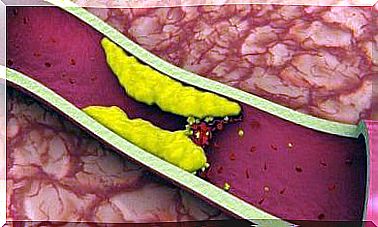Chronic Hiccups: Is It Possible To Treat It?
Chronic hiccups can affect all aspects of a person’s life, affecting their personal relationships and sleeping patterns. Find out more in this article.

Everyone knows what hiccups are and have had them at one time or another. It consists of a series of involuntary contractions of the diaphragm, which cause the vocal cords to close with that characteristic and funny sound. However, chronic hiccups are far from funny.
Chronic hiccups are a rare disease. It is estimated that there is only one case per 100,000 inhabitants; here, these diaphragm contractions are repeated for episodes of more than 48 hours.
Having chronic hiccups can be a symptom of another illness. It is therefore difficult to treat it because it is above all necessary to eliminate the underlying cause. We will, throughout this article, explain everything you need to know about this problem.
What are the causes of chronic hiccups?
As we mentioned, chronic hiccups are those that persist for days or even weeks. It alternates with periods during which the patient does not suffer from it. However, most people get this hiccup more than once in a month.
This pathology generally results from another disease located in the digestive tract, and very frequently in the esophagus and the stomach, which are the two organs most in contact with the diaphragm. Gastroesophageal reflux esophagitis is particularly reported as one of the culprits.
Reflux esophagitis is a disease that causes damage to the esophagus because the acidic content of the stomach increases and erodes its walls. This gastroesophageal reflux is conditioned by many factors, such as the type of food, smoking and hot infusions.
Even though chronic hiccups can be caused by many things, men are more prone to having it than women. It also seems that stress and anxiety are triggers.

What are the other causes?
Since chronic hiccups are involuntary contractions of the diaphragm, it should be borne in mind that any nerve damage affecting this muscle can cause it. At first, it can occur because of a brain injury in the area that triggers the reflex.
The most common diseases that injure involuntary motor neurons are meningitis and multiple sclerosis. We have also seen that chronic hiccups could be a symptom of a brain tumor or arise as a sequel to a cerebrovascular accident.
Damage to the nerves that control impulses to the diaphragm can also be a trigger. These are called the phrenic nerves, which connect the central nervous system with the abdominal muscle. Part of their journey is through the neck and thorax, and pathologies in this area should therefore be ruled out.
Finally, it is important to note that chronic hiccups can be the side effect of certain medications or drugs. In fact, it sometimes appears after anesthesia or a surgical technique. It has also been observed in alcoholics and people addicted to sedatives.

Are there any treatment for chronic hiccups?
The treatment of this pathology is based on the resolution of the underlying cause that caused it. In other words, if the chronic hiccups are due to gastroesophageal reflux disease, the most important thing will be to treat this disease, for which antacids are used which regulate the pH of the stomach.
However, beneficial effects have been found in some drugs, which can be used for chronic hiccups as such. Chlorpromazine and metoclopramide are drugs that help indirectly. The first is generally used as an antipsychotic, and the second is for nausea.
If none of this works, there are surgical techniques to treat chronic hiccups. They are based on blocking the phrenic nerves, to be able to stop the nerve impulse that contracts the diaphragm.
A bigger problem than the usual hiccups
We must remember that chronic hiccups are a very disabling symptom. It affects all aspects of the patient’s life and even prevents them from sleeping. So, at the time of treatment, it is also important to provide psychological support.
We are not dealing with a case of classic, short-lived hiccups that go away quickly. People with chronic hiccups spend entire days with this symptom and have to adapt their existence to this problem. This is why it is absolutely fundamental to support and help them.









